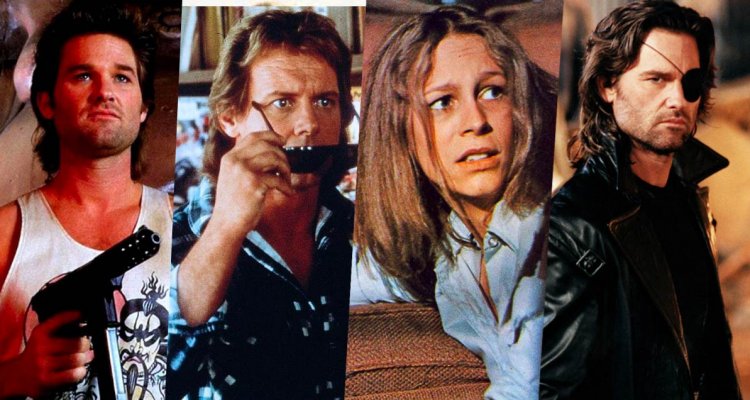“Vampires” (1998)
Carpenter has insisted that almost all of his films are westerns (see Kurt Russell’s occasional, misplaced John Wayne impersonations in “Escape From New York”), but “Vampires” may be his only film that is an actual western. Given that, it’s a shame that the film is such a hateful experience that feels anonymously directed. Treading similar “vampire western” ground as Kathryn Bigelow’s graceful, terrific “Near Dark,” “Vampires” strips away mysticism for a laughably machismo gorefest where the film’s protagonists are two most unlikable assholes you are ever to come across. The hindsight of James Woods being a real-life scumbag does the film no favors, but even if that weren’t the case, his on-screen persona does not lend itself well to “action hero that the audience is rooting for” (nor does Daniel Baldwin’s, for that matter). The only good performance is Sheryl Lee as Katrina, a prostitute who is slowly turning into a vampire throughout. She channels the tortured duality and doomed fate that she brought to Laura Palmer, and mostly overcomes the film’s disturbing male gaze, proving as she always has that she deserved to have a much healthier career than the one she has had. — RO
“Ghosts of Mars” (2001)
As the film industry entered the new millennium, science fiction and horror films were judged less and less on the strength of their concepts as they were on the size of their spectacle, which more often than not came from a proliferation of CGI. As the notoriously lacking effects in “Escape from L.A.” foreshadowed, “Ghosts of Mars” tried to keep up with the trends of its time and feels far more dated than Carpenter’s timeless classics of the 70s and 80s. Though it bucks the trends of Carpenter’s recent work to that point, returning to the unique storytelling that defines much of his filmography, the film never fully coalesced into the kind of movie Carpenter’s fans were expecting. Co-starring Ice Cube, Natasha Henstridge, Pam Grier, and Clea DuVall, “Ghosts of Mars” feels unmistakably like a relic of its time, and Carpenter’s history of utilizing small budgets to great effect fails to manifest here, with cheap-looking production design spoiling Carpenter’s strengths of mise-en-scene at every turn. The experience of making the film and enduring its horrid reception by audiences and critics was so stressful that it turned Carpenter off of filmmaking for almost a decade afterward, and one can only imagine how many potential Carpenter films we were robbed of because of this one. — JN
“The Ward” (2010)
There are few directors that have managed to maintain their strengths through the decades, adapting capably to developments in technology and genre over the years; unfortunately, John Carpenter is no Spielberg or Scorsese in terms of this category. Though he has kept the door open to direct again, Carpenter’s last film to date is this generic, underwhelming story of a girl in a mental institution. tormented by the ghost of her former cellmate. Starring Amber Heard, Mamie Gummer, and Jared Harris, “The Ward” features little of the visual flair that characterizes the rest of Carpenter’s work, and his signature emphasis on building tension before unleashing the horror of the piece feels sloppily rendered. The end result feels regrettably anonymous, a rare feat for a director as distinct in style as Carpenter, and was received as such, sparking the director’s second and current retirement from directing. It’s a mediocre whimper of a film to end a career on, but Carpenter seems content touring with his music, playing video games, and watching basketball. It makes one hope that Carpenter’s recent suggestions about a “They Live” sequel are more than just musings and that we may yet see the Master of Horror return to his rightful throne. — JN

